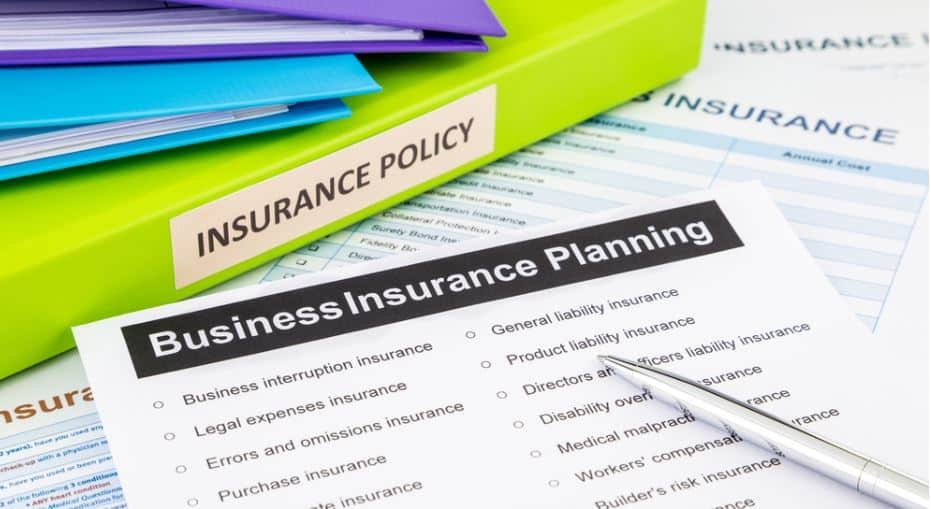Roughly one in four small business owners is uninsured. Small businesses run a higher risk of getting adversely affected by the highs and lows of running a business, yet often ignore the safety of insurance.
Insurance is of paramount importance when it comes to running a small business. It doesn’t just protect you from mishaps but also strengthens your position as a brand to help grow in your industry by taking on bigger investments.
Here are some tips to help you choose the right insurance policy for your small business that will cover contingencies and keep your business protected.
3 Tips for choosing the right Insurance Policy for your small business
Small businesses are often faced with tricky predicaments. They don’t have the strength and support big businesses enjoy and they need to cut corners to keep the ship running. This is greatly reflected in the insurance coverage they opt for. There are so many insurance options for businesses these days, almost to the point that you can get cover for almost anything. One such example is account receivable insurance in Florida, which provides cover for any clients who don't pay you. Who would've know there is insurance for this type of thing?
To avoid the complication of getting multiple insurances, they rely on their personal insurance to cover business aspects, many even claiming that they don’t need insurance at all. Even if they get some sort of insurance, over 70% of businesses end up underinsured.
The solution to this predicament is finding the most suitable policies that suit your needs and budget. This will take time and work to figure out the logistics, but it is absolutely the right course of action to create a strong safety net going forward.
Let’s take a look at some of the winning tips that will help you choose the right insurance policy for your small business.

1. Understand your needs
The first and most important aspect of choosing the right policy for your business is knowing what you need. It may seem obvious but many business owners don’t understand what policy they need because they don’t understand their needs in the first place, as discussed above.
So, in order to pick the right policy for your business, you need to chalk up all your needs as a business. This includes knowing the nature and scope of your business, your legal requirements, the risks you’re willing to take, etc.
Let’s take a look at this through an example of hotshot trucking. A small business of hotshot trucking will spend the majority of its operations on the road. While you can get general policies or even auto insurance to cover your operations as a whole, a hot shot insurance will be more appropriate.
It will not only insure your trucks for seamless operations on the road but will also cover related aspects of your business. What is more, you can tailor the policy to your specific business needs to fit it better to your scope of operations.
Here are the key needs of a business you need to specify in order to pick the best policy:
a) Nature and scope
Take a look at the type of industry you operate in. What activities do you undertake from production and marketing to the selling of goods and services? How do you carry out your operations in terms of space, equipment, and employees needed?
And lastly, how big is your business as of now, and what are your plans for expansion in the future?
These factors help you understand the nature and scope of your business. Having a detailed idea of the intricacies of your business helps you pick the right plan.
This way, you can directly relate a policy stipulation to your needs and know if it's for you or not. For example, if a policy covers 20 vehicles on the road at the moment and you usually have 30 vehicles on the road, you’ll know right away you’ll need a bigger plan.
b) Legal responsibilities
The next aspect to consider is the legal responsibilities of your business. These relate to the area and industry you operate. You’re legally liable to the local, state, and federal authorities to operate as a business along with the industry laws.
This is an admittedly complicated aspect of running a business and one that business owners shall not ignore when looking at policies. Your policy shall cover your legal obligations, covering you in case you take a misstep.
Furthermore, you can take the help of a legal consultant to help you understand your legal obligations and what policies will help you cover them in full. The goal is to not let any contingency slip your safety net in order to achieve maximum cover in legal aspects.
c) Business assets
Take a thorough analysis of your assets and liabilities. What assets do you want to insure for the future? This includes current assets, liquid assets, and investments that you undertake. You might want to insure your investments against price hikes and natural calamities.
Many business owners make the mistake of assuming their personal insurance for their assets will cover their business assets as well. This is not true. A personal insurance for your personal car will not extend to the vehicles you use for your business.
It’s a conflict of interest even if the personal car is used for business purposes. The correct way to go about this is to get comprehensive auto insurance for your business vehicles as they are an important aspect of your business.
d) Risk
The last factor to evaluate is the risk associated with your business. There are two crucial elements to this:
- The risk that simply comes with the business, and
- The risk you willingly take on as an entrepreneur.
Now, there are certain general risks that are simply associated with a business: the losses you may suffer from time to time, lawsuits by customers or employees, vehicle damages, cyber theft, etc. These are further compounded by the specifics of your business.
So, for instance, if your office is in a place that is prone to earthquakes, you’d need an insurance that covers natural calamities such as that. Moreover, the risk you take as an entrepreneur will also affect the level of overall risk your business undertakes.

2. Understand the policies
Once you have a thorough understanding of your needs, take a look at different policy plans to see which ones fit your needs the best. The goal here is to get the most coverage with as few policies as you can.
No one wants to pay for and keep track of a large number of policies. Conversely, you also don’t want to leave a key aspect of your business exposed to losses by being miserly in creating your roster of policies.
The ideal option is to create a well-rounded roster of policies that provide comprehensive cover for all contingencies while providing you the security to grow in the future. This will heavily depend on your unique needs as a business.
Types of business insurance
Here are the most common types of insurances for small businesses:
- General liability insurance — A general insurance cover that protects you from claims of bodily injury, property damage, and damage to any belongings of a person.
- Commercial auto insurance — An important insurance that covers all the vehicles used for your business operations front theft and damage.
- Commercial property insurance — It protects the physical location of your business against damage and loss, including the equipment and furniture used on the property.
- Workers’ compensation insurance — Workers' compensation is another essential policy that protects your employees from injuries and sickness acquired on the job along with many additional benefits.
- Cyber liability insurance — The insurance cover helps you protect your business from cyber threats such as data breaches and cyber attacks.
- Commercial umbrella insurance — It’s an extra layer of protection on your existing policies, covering the damage that isn’t covered by them.
Don't forget about health insurance as this is also something to consider when reviewing the policies you may need.
3. Pick the policies and the provider
The last important aspect of choosing the policy for you is picking the right policies based on the information we’ve gathered in the previous points: your unique needs and the policies available to you.
This depends on how comprehensive you want to be with your policy cover and the kind of policies you want. You can always take the help of a consultant to help you decide better. We advise that you conduct thorough conversations with your policy providers.
Ask them questions about the extent of the claim the policies will cover and how they can be tailored to suit your needs the best. See if the policy covers fit your budget and only then proceed further.
Understand the specifics of your business to find the most suitable policy for you with ease
Insurance is one of the most important pillars of small businesses. Having your business insured not only secures your business’ assets such as property and vehicles but also keeps you protected from legal actions against you such as claims.
To choose the right policy for your business, take a thorough analysis of your unique business needs to know what requires the most protection. It will help you decide on the right roster of policies that will fall under your budget.
Let us know in the comments what you think is the most important aspect of choosing the right policy for your business.
Author bio
Atreyee Chowdhury is a freelance content writer with more than 10+ years of professional experience. She’s passionate about helping SMBs and enterprises achieve their content marketing goals with her carefully crafted and compelling content. She loves to read, travel, and experiment with different cuisines in her free time. You can follow her on LinkedIn.


